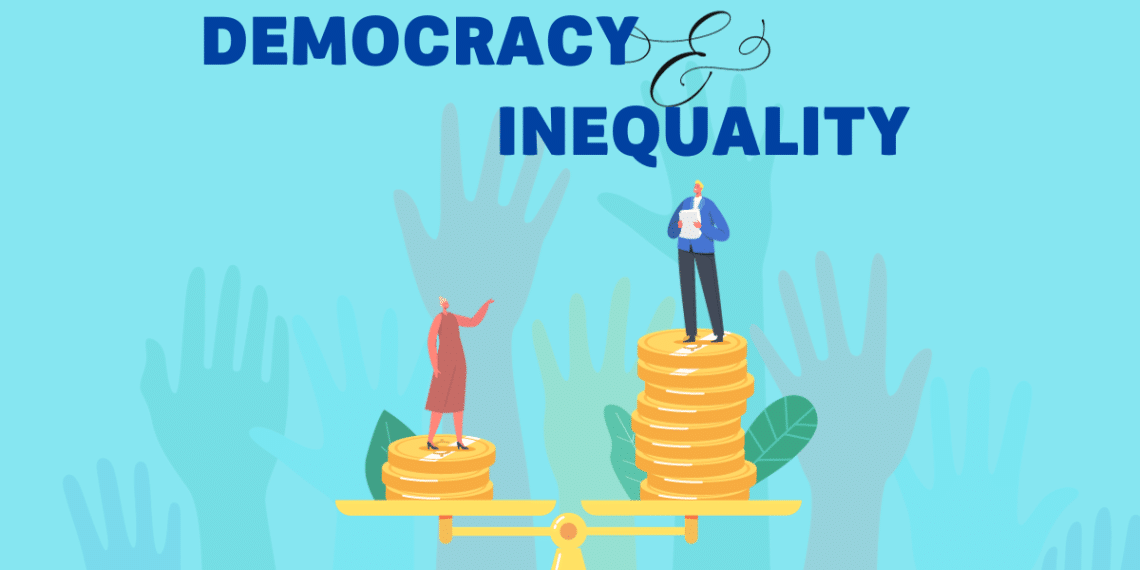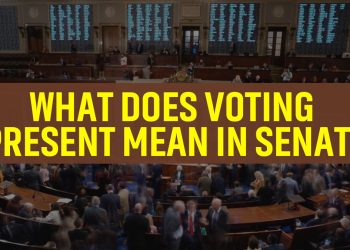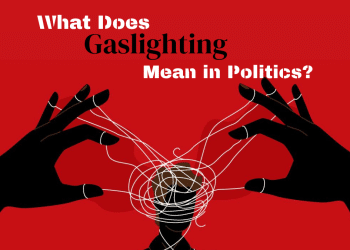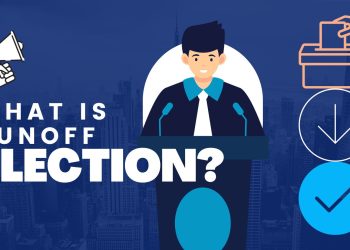Today, inequality cannot be merely spoken of and referred to as a challenge for social development because it is already an open threat to the democratic order all over the globe. As an involved citizen, you need to learn about democracy and inequalities and learn your part in ensuring democracy is protected.
The relationship between democracy and inequality has never been as relevant as it is nowadays. Let’s break it down. This is with reference to the distribution of power and resources and how it can be very detrimental to our democratic system.
Think of it this way: democracy is a jigsaw whose pieces are people. However, there are some puzzle pieces that are bigger than the others. Inequality comes to the fore here.
It is important to understand these contemporary problems. This is more than politics; it’s part of your routine. Some people have larger pieces of the puzzle which makes their voices stronger. Now, this is supposed to be a democracy, but it isn’t supposed to be working that way.
So, why should you care? These challenges cut across legislation, employment, education, and many others. It’s all about what is right, justice, and having your way with your destiny.
This blog post shall dive deeper into the effect of inequality on democracy. It will focus on how it changes our lifestyle, including economic and social matters. It will show you that it is a source of political polarization and a barrier to democracy for you to engage in the process.
Nonetheless, there is some positive news. In addition, we shall debate on possible alternatives as well as the role that you may play when bringing about a change. Therefore, stay tuned to join the solution, and why everyone, including you, should bother.
Democracy and inequality: Exploring their interwoven impact on society
Let’s break it down: democracy and inequality – what’s the deal? Well, they’re like best buds, and their connection is worth knowing about.
- Democracy and inequality – the link
- Why it matters today
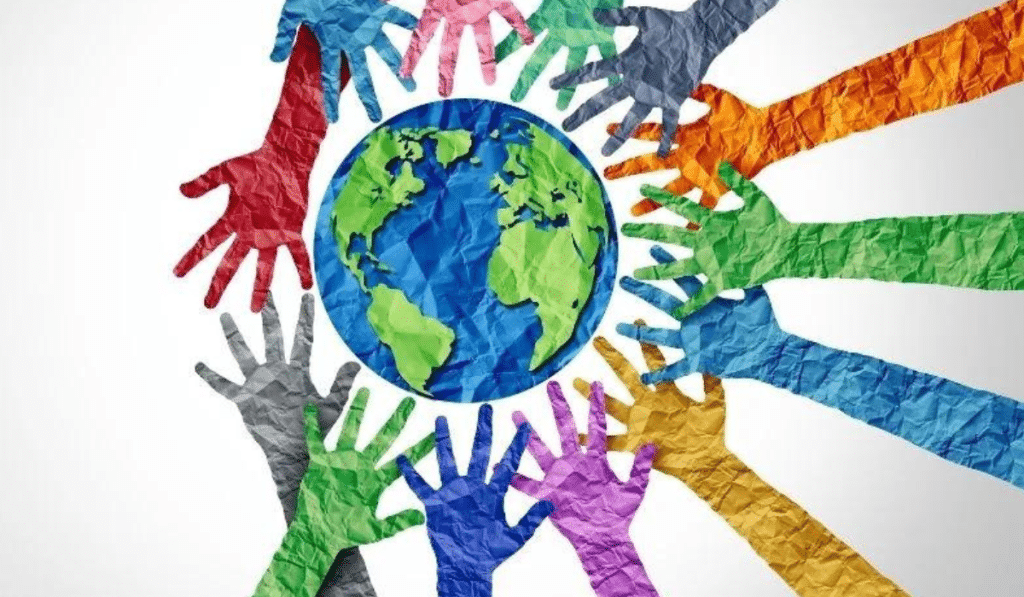
Democracy and inequality – the link
Democracy is all about people having a say in how things are run. It’s about fairness, voting, and having a voice in the decisions that impact our lives. Now, here’s the twist: inequality. That’s when some people have way more power, money, or opportunities than others. When this happens, it affects how the democratic game is played.
See, in a perfect world, everyone’s puzzle piece in the democracy puzzle would be the same size. But in reality, some pieces are tinier, while others are massive. This means some people’s voices carry more weight when decisions are made, while others have to shout just to be heard.
Why it matters today
Democracy and inequality are two very hot issues right now, and there is every sense. The distance between them is getting bigger in the present times, thus interfering with the democratic setup. But why does this matter?
As it concerns one’s life, the things that come out of leadership, law, and policy can be very tangible such as the decisions and laws passed by the leaders. With growing inequalities, it is the big puzzle pieces that direct where the ship sails. There is a danger here. It could mean having pro-rich policies with the rest of us stuck in the backwaters!
That’s not what democracy should look like. That’s supposed to concern equality of chances. Yet, whenever inequality finds its way into a democracy, it has been shown to threaten and actually destroy democracy itself.
Therefore, comprehending this connection has nothing to do with politics but more with your everyday activities and the possibility of influencing them. It’s about what is right and just and the society we want. Therefore, people need to learn this relationship in the modern world.
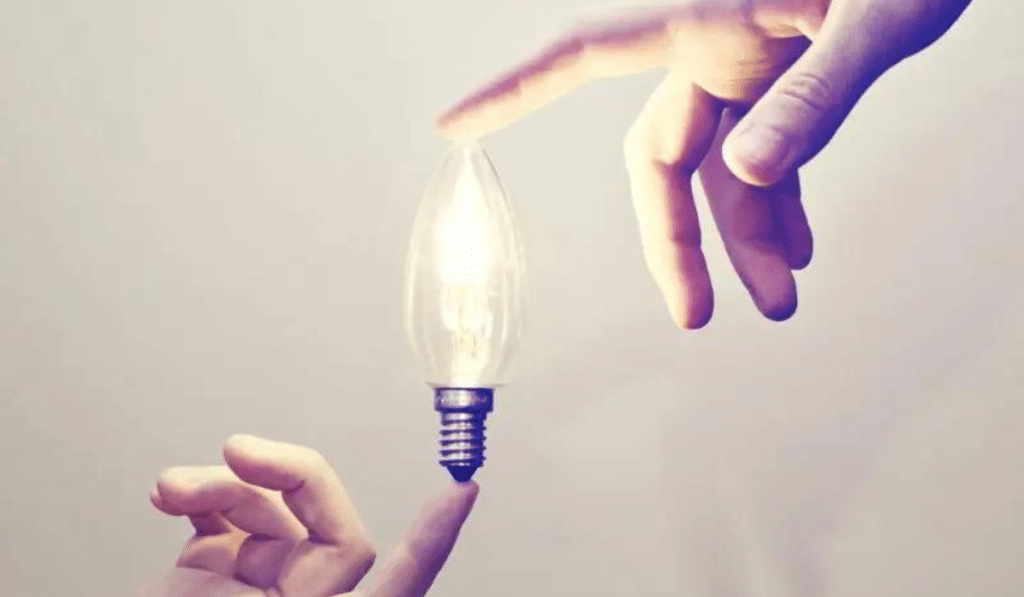
Democracy’s nemesis: The impact of economic inequality
Now, let’s talk about a big player in the inequality game: economic inequality. This effects the game of democracy and inequality in many ways. It’s all about the money, right? Well, yeah, but it goes beyond just bank accounts. It can mess with how democracy works.
- Impact on democratic participation
- Political power play
Impact on democratic participation
Here’s the deal: when the money is concentrated in the hands of just a few, it can throw a wrench into the gears of democracy. In a fair democracy, every citizen should have a say, but economic inequality makes it a bit wonky.
Imagine this: you want to participate in the democratic process, like voting for your preferred candidate or supporting a cause you believe in. But economic inequality can make it tough.
Political power play
When some folks are rolling in cash while others are scraping by, it can tip the balance of political power and throw off the balance for democracy and inequality. Those with fat wallets can donate big bucks to their favorite candidates or causes. They can also hire lobbyists to push for policies that benefit them.
What happens next? Well, politicians might pay more attention to the big spenders, trying to keep them happy and fund their campaigns. This can mean that the voices of those without deep pockets get drowned out in the noise.
So, economic inequality doesn’t just affect your bank account; it can affect your ability to participate meaningfully in democracy. It can make you feel like your voice doesn’t count as much as someone with a bigger wallet.
Examples of this are all around us. Wealthy individuals or corporations might influence laws and regulations in their favor, while the concerns of the average Joe or Jane might not get the same attention. It’s like a game where some players have a lot more chips, and the rules are adjusted in their favor.
In a fair and equal democracy, every voice should matter equally. Economic inequality can disrupt that balance, and that’s why it’s a big contemporary challenge that needs attention.
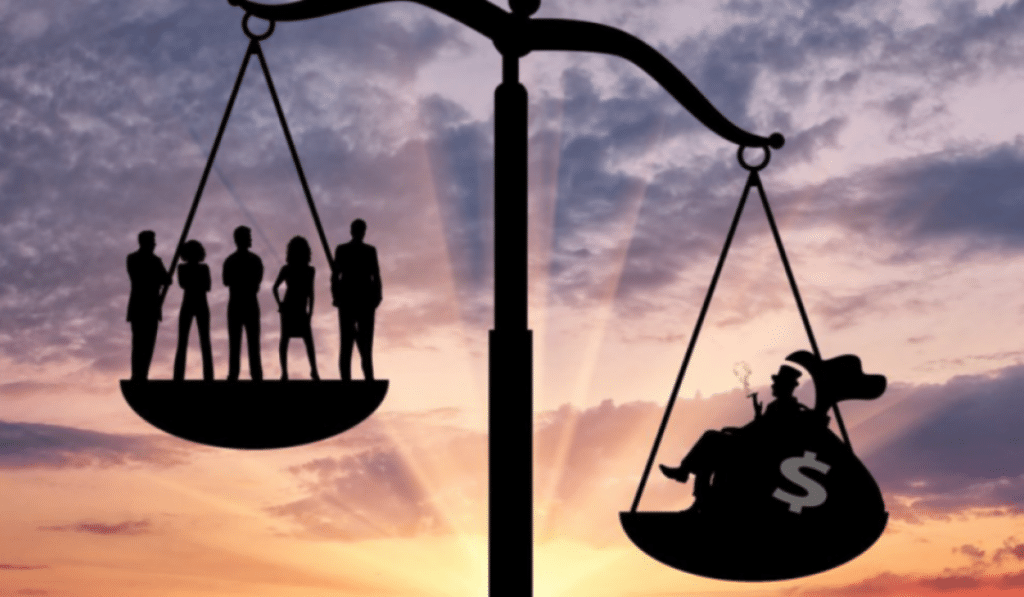
Democracy’s fracture: Unpacking the impact of social and racial inequality
Alright, buckle up because we’re diving into another big piece of the decomacracy and inequality puzzle: social and racial inequality. This is where things get really complex and can seriously shake up democracy.
- Impact on democracy
- Challenges for marginalized groups
Impact on democracy
Social and racial inequality isn’t just about dollars and cents; it’s about people’s identities. It affects how different groups of people are treated and the opportunities they have. And when we’re talking about democracy, this is a big deal.
Take racial inequality, for instance. In many places, people from racial or ethnic minorities face hurdles in exercising their democratic rights. It’s like they’re playing a game with extra rules and obstacles. This can lead to underrepresentation and a lack of diverse perspectives in politics.
Gender inequality is another piece of the puzzle. Women make up a significant part of the population, but they’ve often been underrepresented in decision-making roles. When women’s voices are not equally heard, it’s like having a piano with missing keys – the harmony is off.
Challenges for marginalized groups
Marginalized groups play a huge role in tipping off the balance for democracy and inequality. We shall now discuss the hurdles facing marginalized groups in democracies. It can develop as a vicious circle where such forms of inequality remain. Members of these groups might lack decent education, health care, and employment opportunities resulting in their poor participation in democracy.
Such difficulties result in disempowerment and non-involvement among employees. Whereas if people will think that nobody is paying attention to them then they may drop out of democracy altogether. It is not only a loss for them but also to the democracy which fails to hear the unique voices of these groups in their deliberations.
Democracy should value each and every citizen’s voice irrespective of their ethnic background or gender.: And hence, when social and racial disparities exist the health of democracy is also at stake is not about those who are victimized but the whole democratic system. So, it’s important to solve them so that everyone can have their fair share in a democratic society.
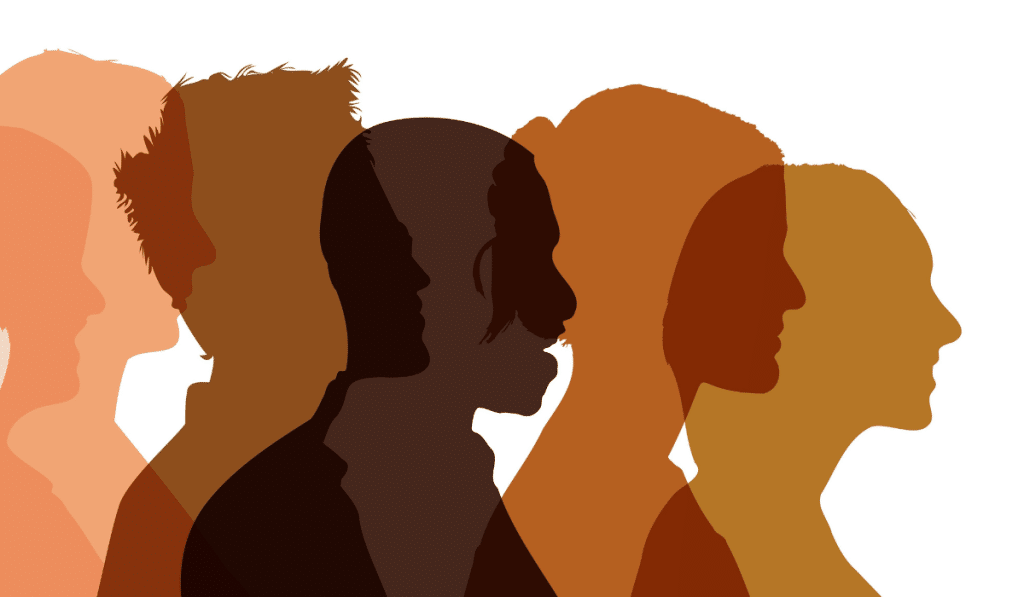
Dividing lines: Income inequality’s impact on political polarization in democracy
Alright, everyone, let’s get into the topic of political polarization and its role in democracy and inequality. That’s like how it is usually in soccer fields where two groups meet and everyone must not be working as a team. However; in this case, it is all about the widening of such already existing income gaps and political divisions.
- How income inequality plays a role
- Consequences of democratic governance
How income inequality plays a role
Picture this: a society where a few people have loads of wealth while others are struggling to make ends meet. Income inequality can create a divide that’s felt in politics too. The wealthier folks might support policies that protect their interests, while those with less might push for measures that benefit them.
The result? You get political parties and leaders who cater to their base – the ones who can fund their campaigns. This can lead to extreme positions and less willingness to compromise. It’s like playing a board game where nobody wants to share or find common ground.
Consequences on democratic governance
So, how does all this political polarization affect democratic governance? Well, it can make things a bit messy. When politicians from different sides of the spectrum can’t agree, it can lead to gridlock – nothing gets done. It’s like a traffic jam on the road to progress.
Another consequence is that it can make it hard for politicians to address the issues that really matter to people, like healthcare, education, or the environment. Instead, they focus on divisive topics to energize their base. The result? Important problems are left on the back burner.
Worse yet, when political polarization is extreme, it can lead to social unrest and even violence. A society that’s deeply divided is not a healthy one, and it can strain the fabric of democracy itself.
So, income inequality isn’t just about who has the fanciest car; it’s about how it can tear apart the unity and cooperation that democracies rely on. And that’s why understanding and addressing this challenge is essential for maintaining a healthy democratic system.
Democracy’s doorway: Addressing voting rights and inequality for equitable participation
Now, let’s talk about something at the very core of democracy: voting rights and access. It’s like the key to the front door of the democratic house, and we need to make sure everyone can use it.
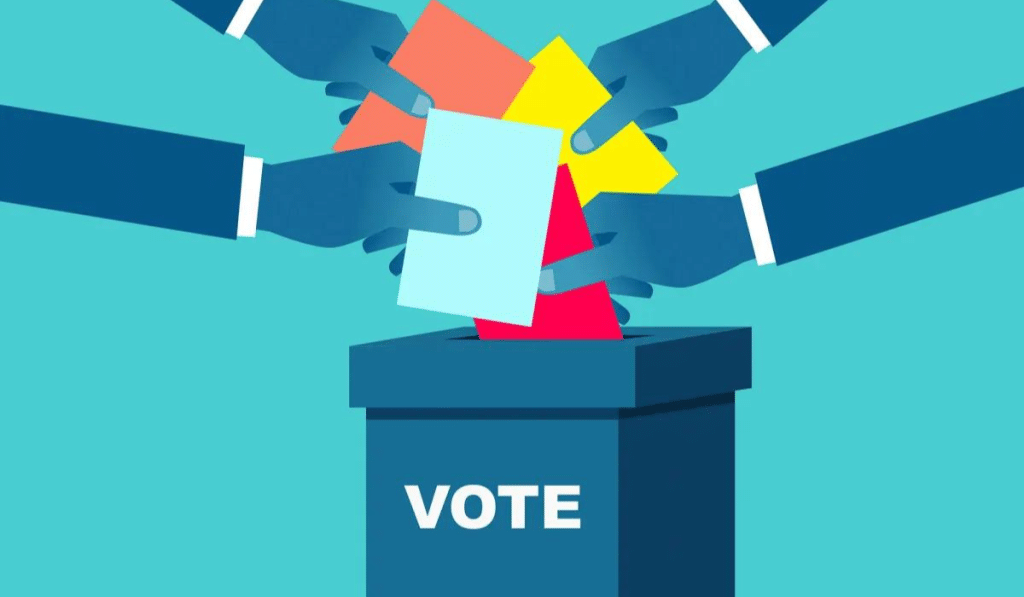
- Impact of inequality
- Efforts to address the issue
Impact of inequality
When we’re dealing with inequality, it’s not just about who has more money – it’s also about who can participate in the democratic process. Imagine you want to vote, but there are barriers in your way. That’s what inequality can do.
For some people, voting is a breeze. They can take time off work, get to the polling station easily, and even have their voices heard through political donations. But for others, it’s not so simple. They might face long lines, limited polling places, or voter ID laws that make it tricky to cast their vote.
Enhancing Voting Equality: Steps Towards Inclusive Democracy
Efforts to address voting inequality are yielding positive outcomes. Initiatives like the Voting Rights Act combat discrimination by ensuring all races can participate equally in elections. These laws also protect minority rights, crucial in overcoming systemic challenges.
Moreover, provisions such as early voting and mail-in ballots improve accessibility and convenience for voters. These adjustments aim to empower all citizens, regardless of their circumstances, to participate fully.
Non-governmental organizations and advocacy groups play a pivotal role. They educate citizens on voting rights, acting as champions of democracy by ensuring everyone understands and can exercise their rights.
In discussions about voting inequality, highlighting these proactive policies is essential. They aim to level the playing field, ensuring every individual has an equal opportunity to express their opinions. In a true democracy, this equity is fundamental to upholding the rights of every citizen.
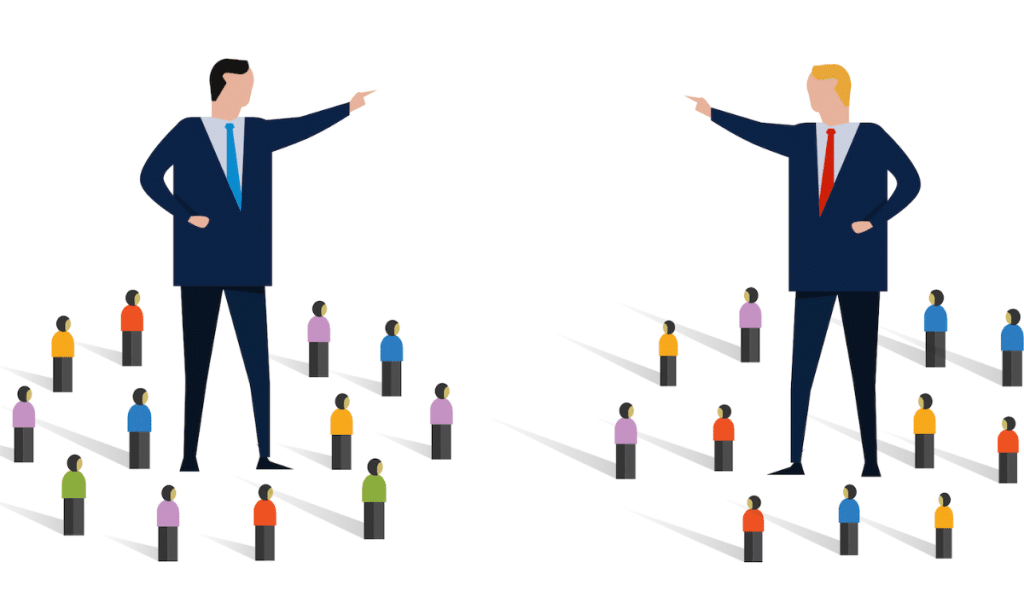
Equity and democracy on a global canvas: Varied strategies, shared objectives
Let us first zoom out and have a bird’s eye view. What do other states have to say about equity and its influence on democracy? Every nation is a member of this global puzzle that has a special contribution for each one of them.
We will now look at some countries and find out what they do to address this. There is high level of strength in welfare states such as Sweden and Norway as observed in the Scandinavian region. They tax their rich more, and they provide necessary things such as health care, education, and so on. They ensure the puzzle pieces are more equally sized as though they were equalizing the pieces.
On the other hand, the United States takes a different approach. It emphasizes individual freedoms and a free-market economy, which can lead to more income inequality. It’s like letting the puzzle pieces be different sizes but focusing on making more pieces overall.
In South Africa, the legacy of apartheid still casts a shadow. Efforts to address racial and economic inequality continue, and they’ve made strides toward a more equal society, like putting together a puzzle piece by piece.
International efforts
Now, what about international efforts? The UN and the World Bank are among the organizations that are aimed at making the world equal and democracy spread all over it. The sustainable development goals (SDGs) that the UN has adopted among others also seek to reduce inequalities and build more inclusive societies. As if they were making a worldwide puzzle-solving assignment.
For instance, international agreements such as the Universal Declaration of Human Rights as well as regional organizations like the European Union strive to enforce the protection and promotion of democracy and human rights beyond the national boundaries. They are like jigsaw pieces that link a distant world here.
Therefore, although different countries handle inequality and promote democracy in different ways, globally a push is being undertaken to establish an equal and fair world. It’s almost everyone putting each part of a jigsaw of a just and fair society in place.
Addressing inequality’s impact on democracy: Practical solutions and recommendations
So, what can we do about the challenges of inequality and its impact on democracy? Well, here are some potential solutions and recommendations to help us navigate this puzzle.
- 1. Education and awareness
- 2. Progressive taxation
- 3. Campaign finance reform
- 4. Strengthening voting rights
- 5. Economic and social policies
1. Education and awareness
We can start by educating ourselves and others about the importance of democracy and the effects of inequality. Awareness is the first step in creating change. When people understand the issues, they’re more likely to get involved and advocate for fairness.
2. Progressive taxation
Many suggest a fairer tax system that doesn’t put the burden on those with less. This can help fund social programs that provide equal opportunities for all citizens, like quality education and healthcare.
3. Campaign finance reform
To reduce the influence of money in politics, we can push for campaign finance reform. Limiting political donations and increasing transparency can level the playing field and make sure politicians represent the people, not just the wealthy.
4. Strengthening voting rights
Efforts to ensure equal access to voting, like expanding early voting or making it easier to register, can empower more citizens to participate in the democratic process.
5. Economic and social policies
Governments can implement policies that promote economic and social equality. This includes raising the minimum wage, supporting affordable housing, and investing in job training programs.
FAQs
1. What are gender inequality and its implications
Gender inequality is when one gender, usually woman, faces unfair treatment or discrimination compared to the other. It’s like giving more cookies to one sibling just because of their gender—it’s not cool.
Well, imagine playing a game where half the players start with fewer resources and tougher rules. That’s not fair, right? The same goes for life. Gender inequality messes with everyone’s shot at a fair game, limiting opportunities and slowing down progress.
Think of democracy as a team sport. If some players aren’t allowed on the field or get ignored during strategy talks, the team won’t perform at its best. Gender inequality messes with the democratic playbook, sidelining valuable players and affecting the whole game.
Gender inequality isn’t only about women—it’s about fairness for everyone. It’s like fixing a leaky boat; if you only patch one side, the whole thing still sinks. Men, women, everyone benefits when we level the playing field.
Imagine a world where everyone gets a fair shot, regardless of gender. That’s the goal. We can challenge stereotypes, demand equal opportunities, and create a society where everyone’s talents shine. It’s a team effort, and you’re on the team!
2. How does inequality affect democracy
Imagine planning a pizza party, but some folks get only crumbs while others enjoy the work. That’s inequality. Now, democracy’s like that pizza party. When some voices are louder or get more slices, it’s not a fair feast.
Does it really impact everyone? Absolutely. Picture democracy as a carpool. If some seats have seat warmers and WiFi, while others have a bumpy ride, it’s not a smooth trip for everyone. Inequality messes with the shared journey, making the road tougher for some passengers.
Think of power like the TV remote. If only a few have it, they decide what everyone watches. Inequality hands over too many remotes to too few hands, disrupting the democratic channel and leaving some voices on mute.
Can’t democracy handle a bit of inequality? Sure, but it’s like having a leaky roof. A few drops might not bother you, but a storm can flood the whole place. Democracy can handle a sprinkle, but too much inequality can drown out the voices that need to be heard.
By addressing inequality, we’re patching up the democratic table, making sure everyone gets a fair seat and a slice of the pizza party.
3. What is the relationship between inequality and democracy
Imagine peanut butter is democracy and jelly is inequality. Spread them unevenly, and your sandwich is a mess. That’s the deal with democracy and inequality. When one’s too thick, it overpowers the taste of the other, leaving a not-so-yummy result.
Picture democracy as a potluck dinner. If only a few bring the good stuff, the whole feast suffers. Inequality messes with the potluck, making sure only a select few get the gourmet dishes, leaving others with crumbs.
It’s more than just about money. It’s like a game where some players have cheat codes—they always win. In a democracy, if some voices are in cheat mode, it messes up the fair play. It’s not just about wallets; it’s about who gets a say in the game.
Democracy’s the captain, but everyone needs to play fair. If inequality’s the elephant in the room, democracy can’t just ignore it. It’s like cleaning up after a party; everyone needs to grab a broom to make it spotless.
Conclusion
In conclusion, addressing the impact of inequality on democracy presents challenges, but it’s within our grasp. By uniting and advocating for positive changes, we can effectively address these issues. Democracy is inclusive and should benefit everyone equally, regardless of their background.
In a just society, every individual’s viewpoints matter, and everyone participates in shaping the future. Let’s continue engaging in dialogue, staying actively involved, and collaborating to enhance democracy for all. Together, we are capable of achieving this goal!

